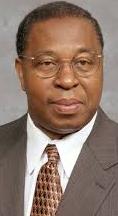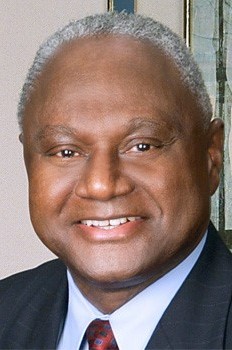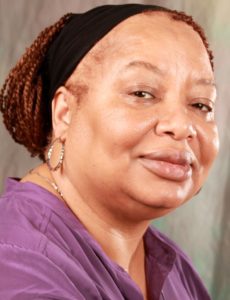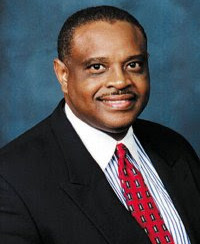Fund-raising, stability major challenge for FAMU’s next president

Fred Gainous … ‘If the board lend the full weight of its credibility and commitment to the university … that’s the person who we need.’

Henry Lewis … ‘The old adage that have to work faster and jump higher goes for the presidency as well.’
By St. Clair Murraine
Outlook staff writer
As FAMU’s Board of Trustees prepare for a retreat where plenty of discussion is expected next weekend over what qualities the university’s next president should have, questions continue to surface whether Larry Robinson would be the next choice.
Robinson has already won the support of many stakeholders, but members of FAMU’s faculty and other supporters are among those who aren’t so sure. The two major concerns are fund raising and bringing stability to the university.
Former FAMU presidents Henry Lewis and Fred Gainous also weighed in, based on their experience of running the university. So did congressman Al Lawson.
State-wide financial cuts for universities and colleges will be one of the biggest challenges for the next president, Lawson said.
“Look across America, you’ll see the dynamics have changed,” he said. “People are looking more to people who can raise money for the institution.”
Even with lobbying for funding, “FAMU has a tougher job to convince the legislature,” Lawson added.
In part, he said, making a case for funding could be especially difficult for FAMU because it often has to remediate many of its students, who come from low-income families.
Without more funding from the state and it three major direct support organizations, FAMU will need a president who could get corporate support, Lewis said. That was one of the issues he faced during his brief stint as interim president, said Lewis, who was Provost and Vice President for Academic Affairs at the American University of Health Sciences (AUHS) in Signal Hill, Calif. He also was president of Florida Memorial University for two years.
Having wealthy alums also could be a source of funding for FAMU, Lewis said.
“You’re starting from a different place and you have to work harder because you don’t have the infrastructure that other institutions have,” he said. “The old adage that have to work faster and jump higher goes for the presidency as well.”
The fact that FAMU has gone through five presidents since he served in 2002, raises concern about the next president’s ability to bring stability to the university. Lewis also pointed to accreditation issues that could surface if FAMU doesn’t find a president soon.
Those who are concerned also wonder why the BOT has taken more than six months to name a permanent president. Last September when the BOT terminated Elmira Mangum after two years as president, Robinson was called into the interim role for a third time in five years.
It’s that loyalty that Robinson’s supporters point to as reason for him to be retained fulltime.
“We like the job that Dr. Robinson is doing right now,” said Gregory Clark, president of the National Alumni Association. “We think he understands the direction the university needs to go. We just think he can do the job.
Board members have been mum on the presidential search since its chairman Kelvin Lawson announced the hiring RHR International LLP, a New York-based firm, to provide a profile of the characteristics necessary for the next person who might take the office in Lee Hall.
In addition to the profile outlined by RHR, the BOT has to weigh in with its own standards to some degree, said Gainous, who was president from 2002 to 2004.
“If the board lend the full weight of its credibility and commitment to the university and appoint the best possible person they could find to re-imagine and reengineer the university as it needs to be done, depending on what the issues are and come to a conclusion as a board that’s the person who we need,” Gainous said.
However, Alan Levine, a member of the state’s Board of Governors, said that the BOT will have to appeal to the governors to bypass a national search if it settles on Robinson.
“I think it’s inching in the right direction,” Clark said. “Our concern is going out and doing another full-blown search when we’ve got somebody that can get the job done.”
Adding to speculation over why the BOT is moving at a pace that seemingly frustrates FAMU’s faculty is the board’s decision to hire RHR.
While faculty support for Robinson is in doubt, Liz Davenport, said she will back him on one condition. Davenport is president of the president of the United Faculty of Florida.
Her sticking point is Rodner Wright, who Robinson appointed as provost. He hasn’t proven to be a good supervisor of faculty, she said.
“I told (Robinson) he must get rid of his provost,” said Davenport, a professor in the school of education. “A strong provost is important and we don’t have a strong provost.”
“If you had to push me to make me make an opinion I think that Dr. Robinson should be given his chance.”








